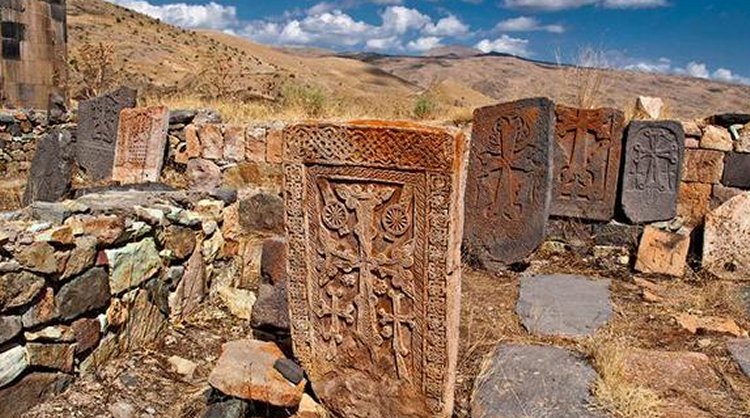Ancient Armenia Remains A Country Full Of Secret History
AncientPages.com - Armenia is one of the oldest countries in the world. Scientific researches,
archaeological findings, old cuneiform inscriptions, ancient maps and even the Holy Bible provide lots of evidence that the Armenian Highland is the craddle of human civilization.
In the ancient times Egyptians and Sumerians believed that the wisdom and science descended upon them from the Armenian Highland.
From the beginning of time, the people there were named 'God-men'.
Armenia's historical legacy
To say that Armenia is an old culture would be an understatement. The people lived here since before the Stone Age. Periodically they evolved into a civilised culture, and that culture turned into what Armenia presents to the world nowadays. It would be quite relevant to mention that in 2007 a 6,100-year-old winery, the oldest in the world, was discovered in Areni cave complex, located in Vayots Dzor region of Armenia, reports Blasting News.
And if this was not enough, in the same cave complex a 5,500-year-old leather shoe was found in 2008! But let's not talk too much about the prehistoric times, and instead come closer to already well-established civilisations.
The capital of Armenia, Yerevan, was established in 782 BC, preceding Roma (founded in 753 BC) with around 30 years! This makes Yerevan one of the oldest cities in the world that still stands still!
In the year of 401 BC Greeks made one of their first attempts to invade Persian Empire. The unit of Greek mercenaries, led by a famous Greek general Xenophon embarked on an adventure to aid Cyrus the Younger in his operation. Unfortunately, they had to turn back without getting to Persia, since Prince Cyrus was defeated and killed, long before the mercenaries could join his army.
The way back home lay through Armenia.The ventures of his soldiers in Armenia were described in detail in Xenophon's Anabasis, a valuable historical record. The accent of Xenophon's writing was on Armenian hospitality (which, I assure you, has not changed a bit even after almost 2,500 years!). His soldiers were well-fed, they had a place to rest.
Most interestingly, they were presented with a strange alcoholic beverage. Here is what Xenophon writes about it:

Stuffed with grass, perhaps as an insulator or an early shoe tree, the 5,500-year-old moccasin-like shoe was found exceptionally well preserved—thanks to a surfeit of sheep dung—during a recent dig in an Armenian cave.
There was also wheat, barley, beans, and barley wine in large bowls. These barley-corns were in the drink up to the brim, straws were in it, some larger and some smaller, without joints. When someone was thirsty, they had to take these straws into their mouths and suck. It was quite pure unless it was diluted with water, yet quite pleasant when one was used to it.
This beverage was beer! According to historical sources, the Greek were not exceptionally fond of beer and considered it to be an "uncivilised" drink. However, the description given in Anabasis presents us with a very different outlook on beer.
Another interesting fact about Armenia is that in 301 AD this country was the first in the world to accept Christianity as a national religion. If you visit Armenia you will find a lot of monasteries, cathedrals, churches, chapels and many other Christian structures. It is said that the oldest church in the world is also in Armenia (St. Etchmiadzin Cathedral, 303 AD).
When one is talking about Armenia it is impossible not to mention the churches. There are hundreds of them all over the country, the vast majority of those date back to the Middle Ages or earlier and they amaze with their exceptional architecture.
AncientPages.com
source: Blasting News























